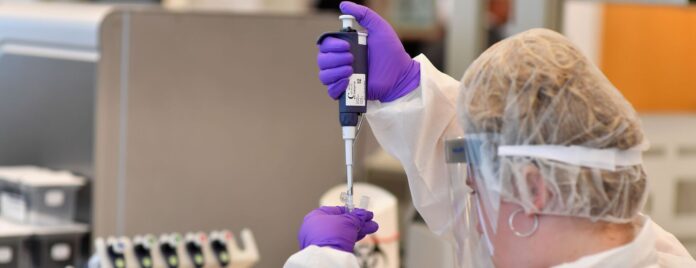Changes to a new federal rule of evidence will go into effect on Friday, reminding judges that they should be extra vigilant about not allowing “junk science” from expert witnesses to reach juries.
The tweaks to Federal Rule of Evidence 702 itself are minimal, with only two changes to its wording. But an attached committee note sends a clearer message: Judges should not let expert analysis that doesn’t reach a certain standard through to juries. “Judicial gatekeeping is essential,” the note reads.
“I just think it’s sort of a reminder – judges, this is your job,” said Jules Epstein, a law professor at Temple University.
The amended rule now says lawyers must prove to a court that “it is more likely than not” that the expert testimony should be admitted under earlier set standards, which include whether the testimony is “based on sufficient facts or data” and “will help the trier of fact to understand the evidence or to determine a fact in issue.”
The amendment also clarifies one of those standards. It now says courts should find it more likely than not that “the expert’s opinion reflects a reliable application of” principles and methods relevant to the facts of a case, after earlier calling for the expert to have “reliably applied” them.
The committee note says the changes do not create “any new, specific procedures” but are “simply intended to clarify” that courts should be determining whether expert testimony is admissible.
“Similarly, nothing in the amendment requires the court to nitpick an expert’s opinion in order to reach a perfect expression of what the basis and methodology can support,” it reads, adding that the standard “does not require perfection. On the other hand, it does not permit the expert to make claims that are unsupported by the expert’s basis and methodology.”
The changes are the result of a years-long process to amend the rule, dating back to a 2017 conference by the Advisory Committee on Evidence Rules on issues tied to forensic expert testimony.
A section of the committee note on the rule’s changes focuses on forensic experts, and warns that they should “avoid assertions of absolute or one hundred percent certainty—or to a reasonable degree of scientific certainty—if the methodology is subjective and thus potentially subject to error.”
Jeffrey Bellin, a professor at William & Mary Law School who has written a textbook on evidence rules, said that it can be hard for one side to tell a jury to discount the other’s forensic expert’s testimony, as those experts can come across as typically highly qualified.
He said that in the past, some forensic experts were using absolutes to describe their analysis of evidence, like bite marks in criminal cases. But that science was later debunked and resulted in overturned convictions.
“What they’ve come up with is kind of a modest approach, which is a slight change to the text of rule 702, and then an advisory committee note that’s stronger, that’s trying to remind judges to make sure this forensic testimony is both reliable and presented accurately to juries,” Bellin said.
Over 500 comments were submitted to the advisory committee about the potential rule tweak, which has evolved over the years. Among its critics was the American Association for Justice, the association for the plaintiffs’ bar. Susan Steinman, senior director of policy and senior counsel for AAJ, said they “wanted the least amount of changes as possible to the rule.”
“From our members’ perspective, they want the jury to have as much of a role as possible in evaluating evidence, in evaluating the facts, in evaluating the information provided by experts and in deciding the case,” Steinman said.
Judges have long been under scrutiny over whether they can properly analyze the sometimes technical science raised in cases before them. Steinman said that while there is a role for judges in examining expert testimony, there’s some information that they aren’t more qualified to evaluate than a jury.
She said that can be particularly relevant in cases where experts from each side are giving contradictory testimony. “Once you decide you’re going to allow that type of testimony into the case — does this product cause cancer or not, does this pollutant lead to certain types of nervous system damage or not — then that is a decision for the jury to evaluate,” Steinman said. “What we don’t want is the judge deciding which expert over another adds value.”
Still, it’s unclear exactly how the rule changes will affect attorneys. Some federal courts have already begun taking it into account before the rule’s official adoption. US District Judge Beth Freeman of the Eastern District of New York in an Oct. 30 ruling excluded an expert witness from a December trial — when the rule is in effect — saying the witness wasn’t qualified “under either the current or forthcoming version of Rule 702.”
Epstein and Bellin agreed that for many attorneys who regularly work with expert witnesses, the rule change shouldn’t make a major difference.
“Maybe we have to work a little harder on communicating to the judge, if there’s a pretrial challenge, how science works, why this is good science,” Epstein said.
